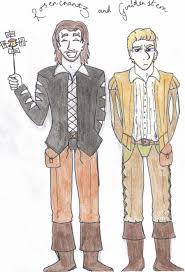 Coming up: Thursday, the counselors will be presenting PSAT materials for the test on Wednesday, October 19
Due tomorrow: the annotation graphic organizer for those who received extended time. Remember this counts as a writing grade. (class handout from Monday / another copy below)
Friday: power point review for Hamlet 3 vocabulary
vocabulary quiz for Hamlet 3
Coming up: Thursday, the counselors will be presenting PSAT materials for the test on Wednesday, October 19
Due tomorrow: the annotation graphic organizer for those who received extended time. Remember this counts as a writing grade. (class handout from Monday / another copy below)
Friday: power point review for Hamlet 3 vocabulary
vocabulary quiz for Hamlet 3
In class: collecting the annotation exercise graphic organizer.
Listening to Act II.ii. until line 167.
We will complete today's graphic organizer as we go along. I'll collect this at the end of class.
Learning targets: I can cite strong and thorough textual evidence to support analysis of what the text says explicitly as well as inferences drawn from the text, including determining where the text leaves matters uncertain.
I can analyze the impact of the author's choices regarding how to develop and relate elements of a story or drama.
I can determine the meaning of words and phrases as they are used in the text, including figurative and connotative meanings.
Name_______________________________ Act II.ii Polonius' plans
1. King Claudius tells Hamlet's friends Rosencrantz and Guildenstern of "Hamlet's transformation." What does he wish the school friends to do to help Hamlet who "hath put him, / So much from th'understanding of himself" (II.ii.9-10)? text line II.ii.15
2. What does Queen Gertrude think is the problem with Hamlet? text II.ii.56-57
3. Polonius believes he knows what is wrong with Hamlet, and tells the queen:
My liege, and madam, to expostulate
What majesty should be, what duty is,
Why day is day, night night, and time is time,
Were nothing but to waste night, day and time.
Therefore, since
brevity is the soul of wit,
And tediousness the limbs and outward flourishes,
I will be brief: your noble son is mad (II.ii.86-92).
Note Polonius's phrase "brevity is the soul of wit."
Why is this ironic coming from Polonius' mouth?
4. What does Polonius give to the queen as proof of Hamlet's affections for Ophelia? See stage directions between ii.ii.108-9).
5. What is the plan that Polonius concocts with King Claudius to see if in fact whether Hamlet is "mad" because Ophelia has rejected his affections. See text below and write out the pertinent lines correctly formatted.
Name_______________________ Annotation exercise HamletAct I.v
Directions:
Annotating (What is annotating? Annotating is making a note of explanation or comment about a text. What you write is referred to as an annotation.
Below is an excerpt from Act I.v, when the ghost of King Hamlet reveals to his son the truth about his death, which I have divided into 14 sections.
Step 1: Read the text.
Step 2. Make two comments, connections, and observations or pose a question under the notes section that is connected to the text you have just read. Be as specific as possible. Look closely at the language, the words chosen by the speaker. Consider not just what the word denotes, but its connotation, that is its deeper meaning.
Make sure your work is legible! That means I can read it.
See example number 1
TEXT Your notes
- Ghost
I am thy father's spirit,
Doom'd for a certain term to walk the night,
And for the day confined to fast in fires,
Till the foul crimes done in my days of nature
Are burnt and purged away.
|
Should Hamlet trust this ghost? Is it really his father?
Where is this ghost “doom’d?”
What kind of foul crimes has he done?
How long will the ghost be there?
|
- But that I am forbid
To tell the secrets of my prison-house,
I could a tale unfold whose lightest word
Would harrow up thy soul, freeze thy young blood,
Make thy two eyes, like stars, start from their spheres,
Thy knotted and combined locks to part
And each particular hair to stand on end,
Like quills upon the fretful porpentine:
|
|
- But this eternal blazon must not be
To ears of flesh and blood. List, list, O, list!
If thou didst ever thy dear father love--
|
|
- Ghost
Revenge his foul and most unnatural murder.
|
|
- Ghost
Murder most foul, as in the best it is;
But this most foul, strange and unnatural.
|
|
- HAMLET
Haste me to know't, that I, with wings as swift
As meditation or the thoughts of love,
May sweep to my revenge.
|
|
- Ghost
I find thee apt;
Now, Hamlet, hear:
|
|
- Ghost
'Tis given out that, sleeping in my orchard,
A serpent stung me; so the whole ear of Denmark
Is by a forged process of my death
Rankly abused: but know, thou noble youth,
The serpent that did sting thy father's life
Now wears his crown.
|
|
- HAMLET
O my prophetic soul! My uncle!
|
|
- Ghost
Ay, that incestuous, that adulterate beast,
With witchcraft of his wit, with traitorous gifts,--
O wicked wit and gifts, that have the power
So to seduce!--won to his shameful lust
The will of my most seeming-virtuous queen:
|
|
- Ghost
Brief let me be. Sleeping within my orchard,
My custom always of the afternoon,
Upon my secure hour thy uncle stole,
With juice of cursed hebenon in a vial,
And in the porches of my ears did pour
The leperous distilment; whose effect
Holds such an enmity with blood of man
That swift as quicksilver it courses through
The natural gates and alleys of the body,
And with a sudden vigour doth posset
And curd, like eager droppings into milk,
The thin and wholesome blood: so did it mine;
And a most instant tetter bark'd about,
Most lazar-like, with vile and loathsome crust,
All my smooth body.
|
|
- Ghost
Thus was I, sleeping, by a brother's hand
Of life, of crown, of queen, at once dispatch'd:
Cut off even in the blossoms of my sin,
|
|
- Ghost
If thou hast nature in thee, bear it not;
Let not the royal bed of Denmark be
A couch for luxury and damned incest.
But, howsoever thou pursuest this act,
Taint not thy mind, nor let thy soul contrive
Against thy mother aught: leave her to heaven
And to those thorns that in her bosom lodge,
To prick and sting her
|
|
- Ghost
Adieu, adieu! Hamlet, remember me.
|
|
Hamlet vocabulary 3 by William Shakespeare Vocabulary Quiz Friday, September 29
note another meaning for to harrow!
The quiz will be 10 matching and 10 contextual sentences
1. calamity- (noun) a great misfortune or disaster
2. heir- (noun) a person who inherits or has right of inheritance in the property of another following the latter’s death.
3. To confine- (verb) to shut or keep in
4. commencement- (noun) beginning, start
5. hypocrite- (noun) a person who pretends to have virtues, principles
6. virtue- (noun) goodness
7. to deprive-(verb) took away
8. to harrow-(verb) distresses the mind or feelings
9. imminent- (adjective) likely to occur at any moment
10. incentive- (noun) something that encourages a person to do something or to work harder

